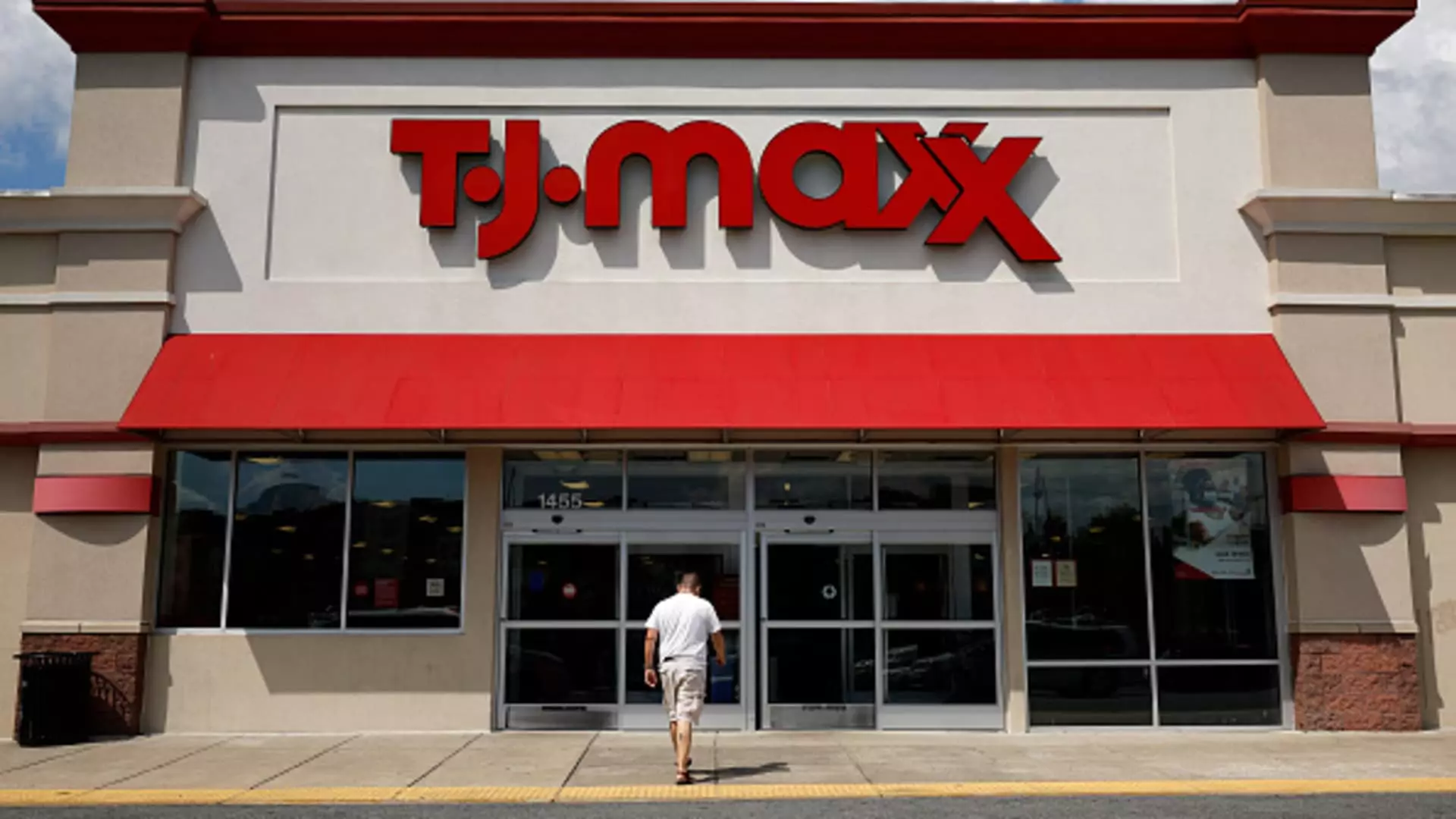In the default narrative pushed by modern retail conglomerates like TJX Companies, there’s a persistent delusion of invincibility. The latest earnings report, which delighted investors with some unexpected surges, does little to mask the underlying fragility of the retail sector in a tumultuous economic landscape. While TJX proclaims success—beating expectations, raising guidance, and signaling strength—the broader context reveals a more unsettling picture: an industry often pretending to be resilient while silently grappling with mounting external pressures that threaten its long-term sustainability.
The euphoric sentiment surrounding TJX’s quarterly performance is rooted in short-term gains and optimistic projections, but these should be approached with skepticism. The supposed “beat” on earnings and revenue is clouded by an overreliance on assumptions—chiefly, that current tariffs will stay in place and that consumer demand will remain resilient. Even as the company attempts to craft an image of confidence, the reality suggests a more precarious footing: consumer habits are shifting, inflation is eating into disposable income, and the economic policy landscape remains volatile.
Moreover, the narrative around TJX’s ability to “offset” higher costs through its buying strategies oversimplifies a profound vulnerability. It’s akin to rearranging deck chairs after a sinking ship—short-term cost containment cannot hide the structural challenges that tariffs, supply chain disruptions, and inflation pose for all retailers, especially those relying on cross-border trade and global supply chains. This illusion of control fosters complacency, which can be dangerous in an environment that demands innovation and resilience rather than mere financial trickery.
The Illusion of Competitive Superiority in a Disrupted Market
At face value, TJX’s reported growth and optimism appear impressive. Yet, beneath this veneer lies a questionable presumption that off-price retailers can continue to leverage excess inventory and buy low, sell high, without facing diminishing returns. The narrative that TJX is “poised to take market share” from traditional department stores rests heavily on the assumption that consumer preference for bargain hunting remains unchecked—a dubious assumption given the economic circumstances and growing consumer debt burdens.
Industry analysts have pointed out that off-price chains may have an advantage in navigating tariffs because they often purchase surplus merchandise after it’s already imported. While this may shield them temporarily, it doesn’t eliminate the rising costs associated with tariffs or supply chain interruptions. Relying on this passive advantage is shortsighted; it masks vulnerabilities that could very well unravel when consumer confidence wanes and discretionary spending contracts.
Furthermore, the focus on quarterly results tends to obscure the more troubling trend: the retail sector’s overreliance on short-term financial engineering rather than long-term adaptation. Higher borrowing costs, inflationary pressures, and geopolitical uncertainties threaten future stability. TJX’s optimism may be a high-wire act—dazzling in the moment but perilous when viewed from a broader economic perspective.
Consumer Confidence and the Depths of Economic Uncertainty
Investors and analysts are eager to interpret TJX’s narrative as a bellwether, but this optimism is misplaced if it isn’t coupled with a critical look at underlying consumer health. While second-quarter sales growth suggests resilience, it’s arguably a fleeting phenomenon—fueled by pent-up demand, promotional activities, and holiday season labor, not an enduring recovery.
The real test will come when consumers, faced with inflation, higher interest rates, and economic uncertainty, begin to tighten their belts. The allure of bargain shopping can only sustain so much pressure before demand stagnates. If the economy stalls or enters a downturn, the retail sector’s supposed “strength” will quickly give way to vulnerability. Companies like TJX, which appear confident now, are arguably riding a wave of temporary relief—one that might crash when the macroeconomic landscape shifts.
More critically, the heavy emphasis on short-term earnings boosts distracts from necessary strategic adaptations. Innovation in digital retail, sustainable practices, and consumer engagement are areas where true resilience is built—yet these companies seem content to bank on historical strategies and market share assumptions that may not withstand future economic storms.
A Cautionary Reflection on the Illusions We Are Sold
What does this all say about the broader economic narrative we’re fed? The glowing reports from TJX and similar retail giants are more than just corporate cheerleading—they embody a dangerous complacency. Investors and consumers alike should question whether the current supposed resilience is real or just an illusion crafted by Wall Street’s appetite for short-term gains.
The reality is that retail’s strength today is, at best, a fragile mirage—one that could quickly evaporate if economic headwinds intensify or consumer confidence falters. Relying solely on positive earnings reports and optimistic projections without addressing the underlying vulnerabilities is a reckless gamble. The industry’s true resilience will be tested not during periods of prosperity, but during inevitable downturns. Until retailers genuinely adapt—prioritizing sustainability, innovation, and consumer trust—they remain vulnerable to the harsh realities of an unpredictable economic future.

